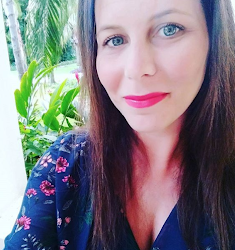This post originally appeared as part of the Hamilton Arts Council's Living Arts blog.
There’s a sentiment that irks me more than all others. It comes in a variety of forms, but each version is delivered in a condescending tone:
“You’re so
lucky that you have time to read.”
“I don’t remember the last time
I had time to read a book.”
“I wish
I had time to read like you do.”
They’re innocuous sounding conversation starters, the kind one should easily brush off. But they appear constantly, and always evoke a sigh. Each makes assumptions about my free time, and imply that in the absence of things of substance, I read.
I can’t get too upset. I know I’m a minority; a voracious reader who has turned an appetite for books into work, in the form of reviewing. I can’t expect everyone to know the important role literary criticism can play in the arts. I’m forgiving.
I am, however, less forgiving when the word “read” is replaced with “write.”
“You’re so
lucky that you have time to write.”
“I don’t remember the last time
I had time to write.” *
“I wish
I had time to write like you do.”
*This one usually begins with a line akin to: “I used to write, you know, in high school, before I had a job.”
Writing is so often treated in the same way we treat knitting, axe throwing, building extravagant houses out of cards. We categorize it as a hobby, by definition “an activity done regularly in one’s leisure time for pleasure.” A hobby is a pursuit done after the things we do of substance.
When we talk about writing as a hobby, we devalue it. We also ignore the countless hours that writers spend not creating -- researching, writing grant proposals, scrapping ideas that once seemed promising but have vanished into thin air.
Few writers have the privilege of writing full time; instead most have no choice but to write in the wee spaces before and after work and/or after caregiving ends. But this doesn’t mean their creative pursuits are simple ways to fill time. Pursuing creative passions is worthy, but so often, they’re dismissed as frivolity.
At the same time I was starting to formulate these annoyances into a blog post, I started a new book (you know, in all my free time) called
Big Magic: Creative Living Beyond Fear, written by Elizabeth Gilbert, who famously unleashed endless conversations about writing and privilege when she published
Eat, Pray, Love. Also a memoir,
Big Magic explores creativity, “offering potent insight into the mysterious nature of inspiration.”
I’ll resist the urge to write a review of
Big Magic here, but I can say it precisely articulates my sentiments, using examples such as Toni Morrison getting up at five o’clock a.m. to tend to her work before heading to a grueling job and J.K. Rowling struggling to get by financially, yet still writing on the side. Neither of these scenarios are remotely glamorous. They’re created out of an undeniable urge to create.
“People don’t do this kind of thing because they have all kinds of extra time and energy for it,” writes Gilbert. “They do this kind of thing because their creativity matters to them enough that they are willing to make all kinds of sacrifices for it.”
The role of the storyteller is one celebrated throughout history, and in many cultures, it still is. When we undervalue storytelling in the form of writing, we dismiss it as unworthy, and we contribute to a culture in which artists are underpaid, or not paid at all, and where aspiring artists hide their aspirations in fear that they’ll be dismissed as frivolous.
 Critics have called Mountain City Girls, the first memoir by Canadian musicians Jane and Anna McGarrigle, a tribute to their younger sister Kate, who died of a rare form of cancer in 2010. However, the intimate and witty book is equally an ode to the trio's unconventional parents, Frank and Gaby, and the many other memorable ancestors who came before them.
Critics have called Mountain City Girls, the first memoir by Canadian musicians Jane and Anna McGarrigle, a tribute to their younger sister Kate, who died of a rare form of cancer in 2010. However, the intimate and witty book is equally an ode to the trio's unconventional parents, Frank and Gaby, and the many other memorable ancestors who came before them.








